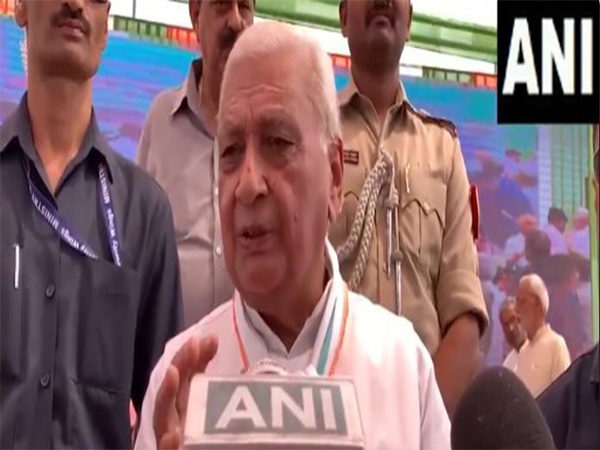Hapur (Uttar Pradesh) [India], April 9 (ANI): Bihar Governor Arif Mohammed Khan on Wednesday raised concerns over the misuse of Waqf properties in major cities, highlighting the leasing of Waqf land for commercial purposes such as hotels.
Speaking on the Waqf Amendment Act, Khan emphasized that while Waqf can be made by Muslims, its benefits should be extended to all, including non-Muslims, provided they are poor and helpless.
“In cities like Delhi and Lucknow, there is no religious or charitable work being run by Waqf, such as hospitals, schools, or water stations. In the middle of Bengaluru, Waqf property has been leased to a hotel for 99 years. Now, will hotels be run on Waqf properties? Patna is a place in Bihar where Waqf property is worth billions,” he said.
“The person who makes a Waqf can be a Muslim, but those who benefit from it can be non-Muslims, as clearly stated in the Quran. The only criterion for this is that they must be poor and helpless,” the Bihar Governor said.
Khan urged for accountability in ensuring that Waqf properties are used for their intended charitable purposes and called for national unity, stressing that the government must take action to prevent the misuse of valuable property.
“If you have no loyalty to your purpose and you are not doing any work to fulfil that objective, then it is not the responsibility of the government to stop the misuse of property worth crores and ensure its benefits reach those who have the right to get these benefits. We should never divide ourselves into small units. India has a culture of knowledge. This is a great country. Feel that greatness and fulfil your responsibility towards everyone,” Arif Mohammed Khan said.
The Waqf (Amendment) Act, 2025, came into force on April 8 (Tuesday). After a 12-hour discussion, the Upper House cleared the bill with 128 members voting in favour, whereas 95 members voted against the legislation.
The act aims to modify the Waqf Act, 1995 and the Waqf (Amendment) Act, 2013. The 1995 act and the 2013 amendment laid out rules to govern the Waqf properties in India; created special courts (called Waqf Tribunals) with powers similar to civil courts (Tribunal decisions cannot be challenged in civil courts); and prohibited the sale of Waqf properties. (ANI)
Disclaimer: This story is auto-generated from a syndicated feed of ANI; only the image & headline may have been reworked by News Services Division of World News Network Inc Ltd and Palghar News and Pune News and World News
HINDI, MARATHI, GUJARATI, TAMIL, TELUGU, BENGALI, KANNADA, ORIYA, PUNJABI, URDU, MALAYALAM
For more details and packages













